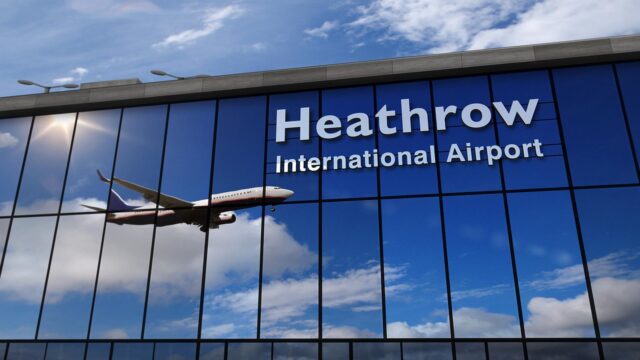Walsh said both Heathrow airport expansion plans should undergo full and fair review, with strong input from airlines who will eventually pay to use any new facilities.
BY ANTHONY OMOH
The International Air Transport Association (IATA) has urged the United Kingdom to conduct a transparent and competitive evaluation of Heathrow airport expansion plans. The global airline body warned that uncritical reliance on Heathrow Airport Limited (HAL) to lead the next phase of development could risk inefficiency, higher costs, and poor outcomes for passengers and airlines alike.
The UK government recently revived plans to expand capacity at Heathrow, the country’s only global aviation hub and among the most congested airports in the world. Two competing development proposals are now under consideration—one from incumbent operator HAL and the other from private sector challenger, the Arora Group.
Director General of IATA, Mr. Willie Walsh, said while the association supports expanding capacity in the Southeast to unlock economic benefits, such projects must prioritise value, not legacy preferences.
“There are clear economic arguments pointing to the benefits of expanding airport capacity in the Southeast of the UK,” said Walsh. “But this must not make any assumption that the current operator is best placed to deliver.”
HAL’s track record has long drawn criticism from the global airline industry. IATA and major carriers have repeatedly accused HAL of delivering poor service, breaching performance standards, and charging among the highest fees in global aviation.
The association pointed to the airport’s operational failure in March 2025, when a high-profile shutdown affected thousands of travellers and disrupted international flight schedules.
That incident, IATA noted, was an embarrassment on the global stage and underscored broader issues around HAL’s management capacity and customer commitment.
“HAL’s performance should give pause for concern,” Walsh added. “Its joy in being the world’s second most expensive airport proves it cares little about its customers—be they airlines or travellers.”
Heathrow airport expansion plans have been controversial for years. A third runway was approved in principle by the UK government as far back as 2018.
However, legal challenges, environmental opposition, and the COVID-19 pandemic delayed execution indefinitely. Industry confidence in HAL has also waned following years of strained relations over cost structures and poor returns on billions previously invested in the airport’s infrastructure.
In contrast, the Arora Group, a well-established UK property developer with assets near Heathrow, has submitted a leaner, more cost-efficient proposal for the Heathrow airport expansion plans. Their plan promises to lower capital expenditure, boost efficiency, and improve the customer experience without overburdening airlines.
“Without any pre-judgment, having the Arora proposal already brings a welcome new perspective from a company with a respected track record,” Walsh stated. Walsh said both Heathrow airport expansion plans should undergo full and fair review, with strong input from airlines who will eventually pay to use any new facilities.
IATA emphasised that expanding Heathrow is not just about local infrastructure but is a matter of national and global significance.
The UK aviation sector contributes around $160 billion to the country’s economy, roughly 4.8 percent of GDP, and supports over 1.6 million jobs. Mismanaging a project of this scale, IATA warned, would undermine national growth and damage the UK’s standing as a global aviation leader.
“This decision is too important to be left solely to HAL’s viewpoint,” Walsh warned. “The government’s decision on the way forward must be well-informed by the airlines who will ultimately be charged to use whatever is built.”
IATA’s comments reflect growing calls within the aviation industry for better governance and accountability in airport infrastructure projects. More importantly, they reflect a shift in thinking: long-standing operators should no longer be guaranteed stewardship by default. Where credible challengers exist, their proposals deserve equal consideration.
As global traffic rebounds, expansion plans are taking shape at other major hubs in Africa, Asia, and the Middle East. These regions are watching how the UK handles Heathrow closely. IATA believes the outcome will shape future global standards in aviation infrastructure planning—emphasising competition, value, and efficiency.
For the sake of passengers, airlines, and national interest, IATA insists that Heathrow airport expansion plans must be based on transparency, performance, and strategic value, not historical advantage.
























